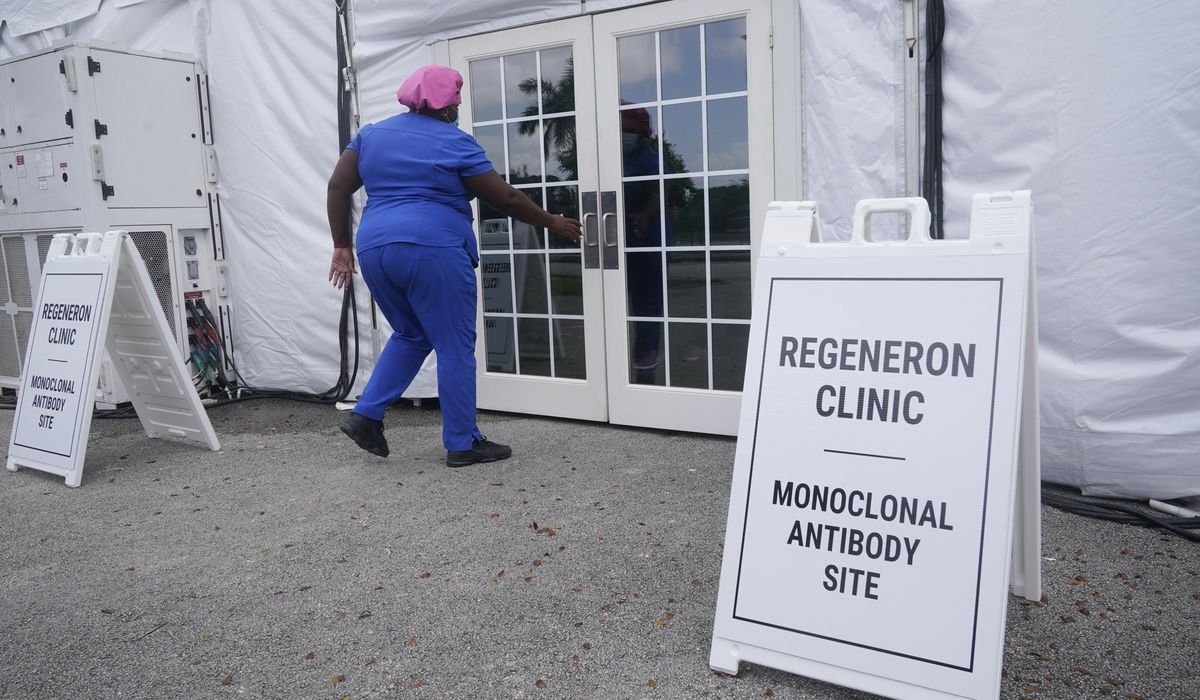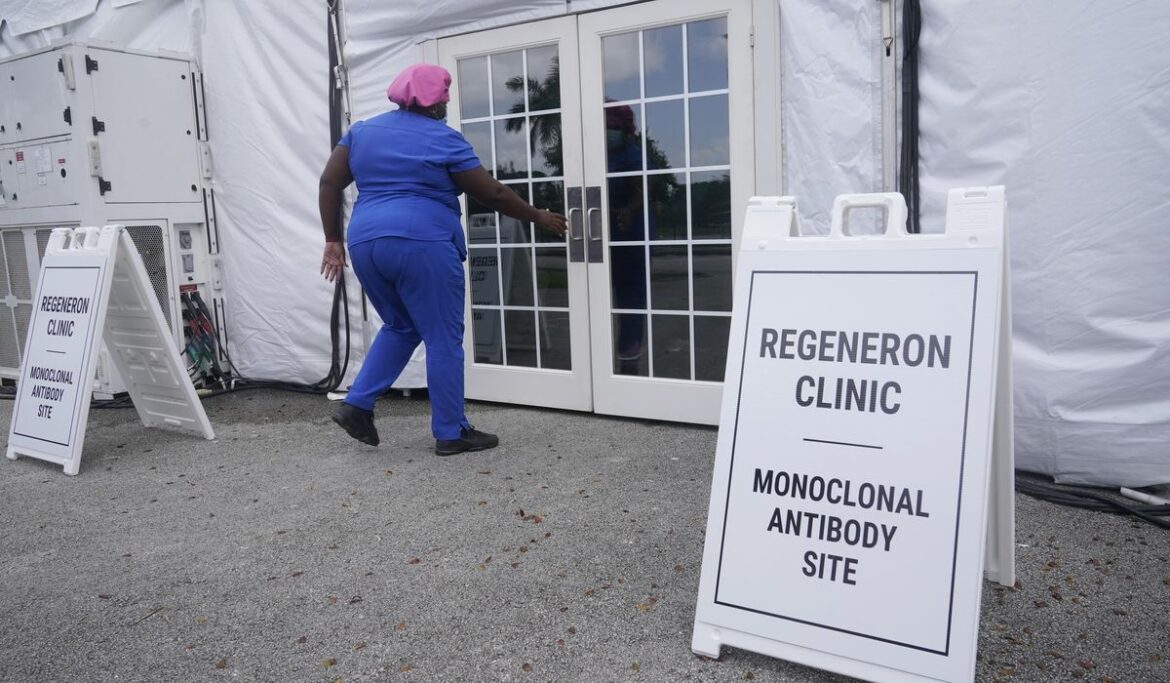
Minnesota’s health department, under threat of a lawsuit, has removed race as a preferential factor in deciding which COVID-19 patients will receive monoclonal antibody treatments.
The state’s guidance was updated to provide treatments for people who are pregnant or have weakened immune systems, but did away with a scoring classification that gave priority to nonwhite patients, according to the Star Tribune in Minneapolis.
The move came after a conservative legal group, America First Legal, demanded that Minnesota, Utah and New York rescind their policies or face legal action for “blatant discrimination.”
“What we are seeing popping up across the country is antithetical to everything we stand for as Americans,” said Gene Hamilton, the group’s general counsel. “And while the allocation of medical treatment based on skin color is not something any American would expect to see in 2022, the American people should understand that this is just another example of the application of ‘equity’ by the woke and radical left.”
In a letter to Minnesota Health Commissioner Jan Malcolm, Mr. Hamilton said the state’s “immoral and racist” policy violated several federal laws, including the Affordable Care Act.
“Rather than directing medical providers to assess underlying medical conditions that could heighten a patient’s risk of progression to severe COVID-19 — regardless of their race or ethnicity — your department lumps all non-White people into one monolithic block and makes blanket assertions about their underlying medical vulnerabilities,” Mr. Hamilton wrote. “This does not promote fairness across your population, it does not respect individuals, and it does not protect against inequity. Instead, it subjects an entire class of citizens to unequal treatment based on the color of their skin.”
Minnesota’s health department used a scoring system that awarded points to patients with certain risk factors, such as chronic kidney disease and diabetes. The department’s scoring also gave two points to people with “BIPOC” status — Black, Indigenous or people of color.
White people who have the same other risk factors, therefore, were not given the same priority ranking for the potentially life-saving monoclonal antibody treatments as nonwhite people who become ill.
America First Legal said in its letters to the states that “directing medical professionals to provide or deny medical care based on immutable characteristics like skin color, without regard to the particular health conditions of the individual patients who are seeking these life-saving antiviral treatments, is nothing more than an attempt to establish a racial hierarchy in the provision of life-saving medicine.”
In New York, the state health department has issued a memo stating that sick non-Hispanic white people can only get oral antivirals if they have a medical condition or unspecified “other factors that increase their risk for severe illness.” Sick nonwhite and Hispanic people don’t face the same requirement to qualify for the treatment.
Rep. Lee Zeldin, New York Republican, said of the state’s policy, “Dividing New Yorkers by the color of their skin like this can’t be more wrong.” He is hoping to win the Republican nomination to square off against Democratic Gov. Kathy Hochul in the fall.
“Governor Hochul must immediately reverse this decision,” Mr. Zeldin said. “This is an extremely divisive and dangerous policy, and I’ve heard from multiple constituents with qualifying health conditions who are concerned they have been denied because of this new order.”
Utah’s health department also has published guidance, based on a scorecard, stating that medical professionals can consider race and ethnicity when determining eligibility for monoclonal antibody treatments for COVID. The department said this week that people who are “non-White race or Hispanic/Latinx people are 35-50% more likely to be hospitalized” than white people.
“For those who do not automatically qualify, the risk score was developed to include other factors proven to increase risk of hospitalization and death from COVID-19,” the department said in a statement. “Each factor in the risk score represents a condition or characteristic that has been shown to put a person at elevated risk for severe disease or hospitalization.”
The department data from more than 100,000 patients with COVID-19 “confirms that even after controlling for age and co-morbidities, Utahns who identify from communities of color have a significantly higher risk of severe disease requiring hospitalization.”
“Public health interventions may be used to attempt to mitigate these disparities in COVID-19 by recognizing the structural inequities that underlie them,” the department said. “One way to do this is to include race/ethnicity in the patient selection criteria.”
Minnesota officials said they were following recommendations of the federal Food and Drug Administration, which advocated the policy in a fact sheet released last September and updated in December.
“Other medical conditions or factors (for example, race or ethnicity) may also place individual patients at high risk for progression to severe COVID-19, and authorization of sotrovimab under the [emergency use authorization] is not limited to the medical conditions or factors listed above,” the document stated.
Mr. Miller, president of America First Legal, called the race-based guideline “an abomination.”
“These racist policies decide questions of life and death based on skin color and must be rescinded immediately,” he said. “Equity is the use of raw societal power to discriminate against American citizens based on their race or other protected characteristics — and these equity programs spreading throughout government must be abolished if liberty and equality are to survive and endure. No right is safe if the government can award or deny medical care based on race.”
• Kery Murakami contributed to this report.
For more information, visit The Washington Times COVID-19 resource page.
Health, The New York Today





